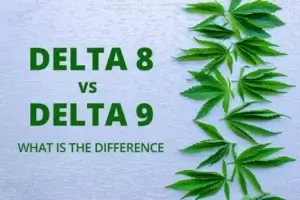Exploring the Legal Landscape: Is Cannabis Legal in Azerbaijan?
The conversation around the legalization of cannabis is gaining momentum globally, with countries like Azerbaijan joining the debate. This article explores the status of marijuana and weed in Azerbaijan, tackling the pivotal question: Is cannabis legal in Azerbaijan? We’ll scrutinize Azerbaijan’s drug policies and the serious consequences of drug addiction and criminal liability for marijuana use in the nation.
Historical background of cannabis laws in Azerbaijan
To grasp Azerbaijan’s stance on cannabis, one must investigate the historical backdrop of the country’s drug policy. Azerbaijan’s narcotics regulations, especially those related to marijuana, have their origins in the Soviet period. A harsh policy on criminal liability was enforced, leading to an outright ban on cannabis and harsh penalties for possession, which illuminates the stringent position Azerbaijan maintains towards the use of this narcotic substance.
Current legal status of cannabis in Azerbaijan
Presently, the Law on Narcotic Drugs and Psychotropic Substances of Azerbaijan, enacted in 1998, upholds a strict ban on cannabis, criminalizing its possession, cultivation, and sale. This law reflects Azerbaijan’s dedication to curbing drug trafficking and addiction, categorizing cannabis as an illegal narcotic and prohibiting its use.
In Azerbaijan, individuals found in possession of even small quantities of cannabis face harsh legal repercussions. The legal system in Azerbaijan makes no distinction between personal use and trafficking, treating both as grave infractions that carry the risk of substantial criminal liability, potentially leading to long-term incarceration and hefty fines for marijuana use.
Understanding the penalties for cannabis possession and distribution
In the South Caucasus region, Azerbaijan enforces rigorous measures against cannabis offenses. The country’s penalties for such crimes are severe, with incarceration periods for marijuana use ranging from three to twelve years based on the amount involved. Fines may escalate to 5,000 times the minimum monthly wage, acting as a strong deterrent. The stakes are even higher for those involved in the cultivation or sale of cannabis in southern Azerbaijan, facing up to fifteen years in prison.
Azerbaijan’s government is unwavering in its opposition to drug-related offenses, with law enforcement agencies vigorously upholding the prohibition on cannabis activities. This resolve in combating drug offenses emphasizes the critical need for individuals to be fully aware of the legal perils tied to marijuana use and to remain vigilant to steer clear of any involvement in drug trafficking crimes in Azerbaijan.
The impact of cannabis legalization in other countries
As the global dialogue on legalizing soft drugs such as marijuana progresses, it is intriguing to note the outcomes in areas where it has been authorized. Nations like Canada and Uruguay, alongside various U.S. states, have experienced economic boosts, increased tax revenue, and a decline in drug-related crimes post-legalization. However, assessing the ramifications of cannabis legalization in Azerbaijan necessitates a nuanced analysis of the unique circumstances and legal framework of each jurisdiction.
Medical cannabis in Azerbaijan – Is it legal?
In Azerbaijan, the recreational use of marijuana remains prohibited, yet strides have been made in the realm of medical remedies. Since 2018, the Ministry of Health of Azerbaijan has sanctioned the use of specific cannabis-derived pharmaceuticals for therapeutic purposes. These medical remedies are rigorously regulated to ensure they are administered solely to patients with qualifying conditions and under the vigilant oversight of healthcare professionals. Moreover, as part of its commitment to combat substance abuse, Azerbaijan offers methadone treatment programs.
The administration of medical marijuana in Azerbaijan is governed by stringent regulations, setting high eligibility standards for patient use. The Azerbaijani government’s meticulous oversight ensures that the marijuana sector operates with precision, fostering responsible use within the nation’s healthcare framework.
The potential economic benefits of cannabis legalization in Azerbaijan
The potential shift towards legalizing soft drugs, such as cannabis in Azerbaijan, could unlock significant economic advantages. Proponents of marijuana legalization argue that it could spark the creation of burgeoning industries, enhance tax income, and generate employment opportunities. If the cannabis industry flourishes in Azerbaijan, it may expand into various sectors, including the production of medical treatments, beauty products, and even textile materials.
Moreover, embracing a forward-thinking drug policy, including the legalization of cannabis in Azerbaijan, could ease the pressure on law enforcement agencies, enabling them to prioritize more pressing issues. The regulated and taxed marijuana market could furnish the Azerbaijani government with additional revenue, potentially reinvested in improving public services and strengthening the country’s infrastructure.
Conclusion
In summary, despite the strict prohibition of cannabis in Azerbaijan, with severe repercussions for unauthorized possession, cultivation, and trafficking, the country has shown a commitment to combating drug abuse. While the medical use of marijuana is sanctioned under stringent controls for certain health conditions, recreational use still incurs criminal penalties.
As the global discourse on cannabis legalization intensifies, understanding the legal framework of marijuana use in Azerbaijan is crucial to avoid harsh penalties. The country’s history and current stance on cannabis, detailed in the International Narcotics Control Strategy Report, draw keen interest from global observers and stakeholders who are vigilant for any policy changes that could impact criminal liability.






